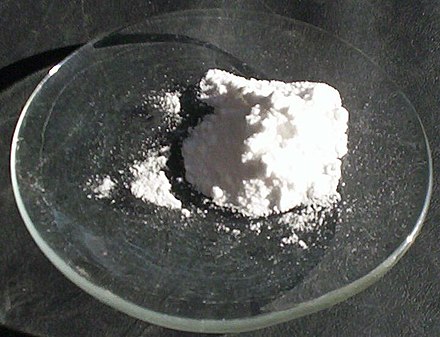Bipolar Disorder
Bipolar disorder, previously known as manic depression, is a mental disorder characterised by periods of depression and abnormally elevated mood. These mood episodes can last from days to weeks, and they significantly impact an individual's ability to function.
Signs and Symptoms
Bipolar disorder typically manifests in late adolescence or early adulthood. The condition is marked by intermittent episodes of mania, hypomania, and depression.
Manic Episodes
Mania is a distinct period of at least one week of elevated or irritable mood, ranging from euphoria to delirium. Symptoms include increased energy, self-esteem, racing thoughts, decreased need for sleep, and impulsive behaviours like excessive spending or hypersexuality. Severe mania can result in psychotic symptoms and may require hospitalisation.

Hypomanic Episodes
Hypomania is a milder form of mania, lasting at least four days. It does not cause significant impairment in social or occupational functioning and lacks psychotic features. Hypomanic episodes may increase creativity and productivity but can still be distressing.

Depressive Episodes
Depressive symptoms include persistent sadness, irritability, loss of interest in activities, changes in sleep and appetite, fatigue, feelings of worthlessness, and thoughts of death or suicide. Depressive episodes are typically longer than manic or hypomanic episodes and can be severely debilitating.

Mixed Episodes
In mixed episodes, symptoms of mania and depression occur simultaneously, such as grandiose thoughts along with feelings of guilt or suicidality. These episodes pose a higher risk for suicidal behaviour due to the combination of depressive emotions and impulsivity.
Diagnosis
Bipolar disorder is diagnosed based on self-reported experiences, observations by others, and clinical assessment. No definitive biological tests exist, but blood tests or imaging may be used to exclude other conditions. The DSM-5 and ICD-10 criteria are the primary diagnostic tools.
Differential Diagnosis
Conditions that may mimic bipolar disorder include schizophrenia, major depressive disorder, ADHD, and personality disorders. Medical conditions such as thyroid disorders, neurological diseases, and certain infections can also present with similar symptoms.

Treatment
Psychotherapy
Psychotherapy aims to help individuals understand and manage their condition. Cognitive behavioural therapy (CBT), family-focused therapy, and psychoeducation are effective for relapse prevention. Interpersonal and social rhythm therapy and CBT are particularly beneficial for managing residual depressive symptoms.
Medications
Medications are the cornerstone of treatment for bipolar disorder.
Mood Stabilisers
Lithium, valproate, carbamazepine, and lamotrigine are commonly used mood stabilisers. Lithium is particularly effective in reducing the risk of suicide and is preferred for long-term maintenance, although it has adverse effects on kidney and thyroid function.

Antipsychotics
Antipsychotics such as aripiprazole and olanzapine are used for acute manic episodes and bipolar depression. They are often combined with mood stabilisers for more effective treatment.
Antidepressants
Antidepressants are not recommended as monotherapy due to the risk of triggering manic episodes. They may be used in combination with mood stabilisers when necessary.
Other Treatments
Electroconvulsive therapy (ECT) is effective for severe manic and depressive episodes, especially with psychosis. Short courses of benzodiazepines may be used for their calming effects until mood stabilisers take effect.
Prognosis
Bipolar disorder is a lifelong condition with periods of remission and relapse. Early recognition and consistent treatment improve prognosis, but many individuals experience cognitive impairments and decreased quality of life. The risk of suicide is significantly higher in individuals with bipolar disorder, emphasising the need for effective management.

Self-assessment MCQs (single best answer)
What is bipolar disorder characterised by?
Which of the following is NOT a symptom of a manic episode?
What differentiates hypomania from mania?
Which episode in bipolar disorder is typically longer and more debilitating?
Which diagnostic tools are primarily used to diagnose bipolar disorder?
Which medication is particularly effective in reducing the risk of suicide in individuals with bipolar disorder?
Antidepressants are NOT recommended as monotherapy for bipolar disorder because:
What type of therapy is beneficial for managing residual depressive symptoms in bipolar disorder?
Which of the following is a mood stabiliser commonly used in treating bipolar disorder?
What poses a higher risk for suicidal behaviour in individuals with bipolar disorder?
Dentaljuce
Dentaljuce provides Enhanced Continuing Professional Development (CPD) with GDC-approved Certificates for dental professionals worldwide.
Founded in 2009 by the award-winning Masters team from the School of Dentistry at the University of Birmingham, Dentaljuce has established itself as the leading platform for online CPD.
With over 100 high-quality online courses available for a single annual membership fee, Dentaljuce offers comprehensive e-learning designed for busy dental professionals.
The courses cover a complete range of topics, from clinical skills to patient communication, and are suitable for dentists, nurses, hygienists, therapists, students, and practice managers.
Dentaljuce features Dr. Aiden, a dentally trained AI-powered personal tutor available 24/7 to assist with queries and provide guidance through complex topics, enhancing the learning experience.
Check out our range of courses, or sign up now!


